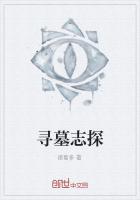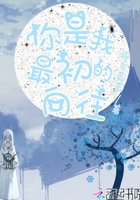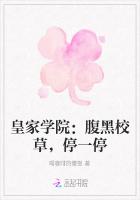His ring was answered by a peasant woman with a low forehead and small close-set eyes, who, after a prolonged scrutiny of himself, his card, and his letter of introduction, left him standing in a high, cold ante- chamber floored with brick. He heard her wooden pattens click down an interminable corridor, and after some delay she returned and told him to follow her.
They passed through a long saloon, bare as the ante-chamber, butloftily vaulted, and frescoed with a seventeenth-century Triumph of Scipio or Alexander--martial figures following Wyant with the filmed melancholy gaze of shades in limbo. At the end of this apartment he was admitted to a smaller room, with the same atmosphere of mortal cold, but showing more obvious signs of occupancy. The walls were covered with tapestry which had faded to the gray-brown tints of decaying vegetation, so that the young man felt as though he were entering a sunless autumn wood. Against these hangings stood a few tall cabinets on heavy gilt feet, and at a table in the window three persons were seated: an elderly lady who was warming her hands over a brazier, a girl bent above a strip of needle-work, and an old man.
As the latter advanced toward Wyant, the young man was conscious of staring with unseemly intentness at his small round-backed figure, dressed with shabby disorder and surmounted by a wonderful head, lean, vulpine, eagle-beaked as that of some art- loving despot of the Renaissance: a head combining the venerable hair and large prominent eyes of the humanist with the greedy profile of the adventurer. Wyant, in musing on the Italian portrait-medals of the fifteenth century, had often fancied that only in that period of fierce individualism could types so paradoxical have been produced; yet the subtle craftsmen who committed them to the bronze had never drawn a face more strangely stamped with contradictory passions than that of Doctor Lombard.
"I am glad to see you," he said to Wyant, extending a hand which seemed a mere framework held together by knotted veins. "We lead a quiet life here and receive few visitors, but any friend of Professor Clyde's is welcome." Then, with a gesture which included the two women, he added dryly: "My wife and daughter often talk of Professor Clyde.""Oh yes--he used to make me such nice toast; they don't understand toast in Italy," said Mrs. Lombard in a high plaintive voice.
It would have been difficult, from Doctor Lombard's manner and appearance to guess his nationality; but his wife was so inconsciently and ineradicably English that even the silhouette of her cap seemed a protest against Continental laxities. She was a stout fair woman, with pale cheeks netted with red lines. A brooch with a miniature portrait sustained abogwood watch- chain upon her bosom, and at her elbow lay a heap of knitting and an old copy of The Queen.
The young girl, who had remained standing, was a slim replica of her mother, with an apple-cheeked face and opaque blue eyes. Her small head was prodigally laden with braids of dull fair hair, and she might have had a kind of transient prettiness but for the sullen droop of her round mouth. It was hard to say whether her expression implied ill-temper or apathy; but Wyant was struck by the contrast between the fierce vitality of the doctor's age and the inanimateness of his daughter's youth.
Seating himself in the chair which his host advanced, the young man tried to open the conversation by addressing to Mrs. Lombard some random remark on the beauties of Siena. The lady murmured a resigned assent, and Doctor Lombard interposed with a smile: "My dear sir, my wife considers Siena a most salubrious spot, and is favorably impressed by the cheapness of the marketing; but she deplores the total absence of muffins and cannel coal, and cannot resign herself to the Italian method of dusting furniture.""But they don't, you know--they don't dust it!" Mrs. Lombard protested, without showing any resentment of her husband's manner.
"Precisely--they don't dust it. Since we have lived in Siena we have not once seen the cobwebs removed from the battlements of the Mangia. Can you conceive of such housekeeping? My wife has never yet dared to write it home to her aunts at Bonchurch."Mrs. Lombard accepted in silence this remarkable statement of her views, and her husband, with a malicious smile at Wyant's embarrassment, planted himself suddenly before the young man.
"And now," said he, "do you want to see my Leonardo?" "DO I?" cried Wyant, on his feet in a flash.
The doctor chuckled. "Ah," he said, with a kind of crooning deliberation, "that's the way they all behave--that's what they all come for." He turned to his daughter with another variation of mockery in his smile. "Don't fancy it's for your beaux yeux, my dear; or for the mature charms of Mrs. Lombard," he added, glaring suddenly at his wife, who had taken up her knitting and was softly murmuring over the number ofher stitches.
Neither lady appeared to notice his pleasantries, and he continued, addressing himself to Wyant: "They all come--they all come; but many are called and few are chosen." His voice sank to solemnity. "While I live," he said, "no unworthy eye shall desecrate that picture. But I will not do my friend Clyde the injustice to suppose that he would send an unworthy representative. He tells me he wishes a deion of the picture for his book; and you shall describe it to him--if you can."Wyant hesitated, not knowing whether it was a propitious moment to put in his appeal for a photograph.















